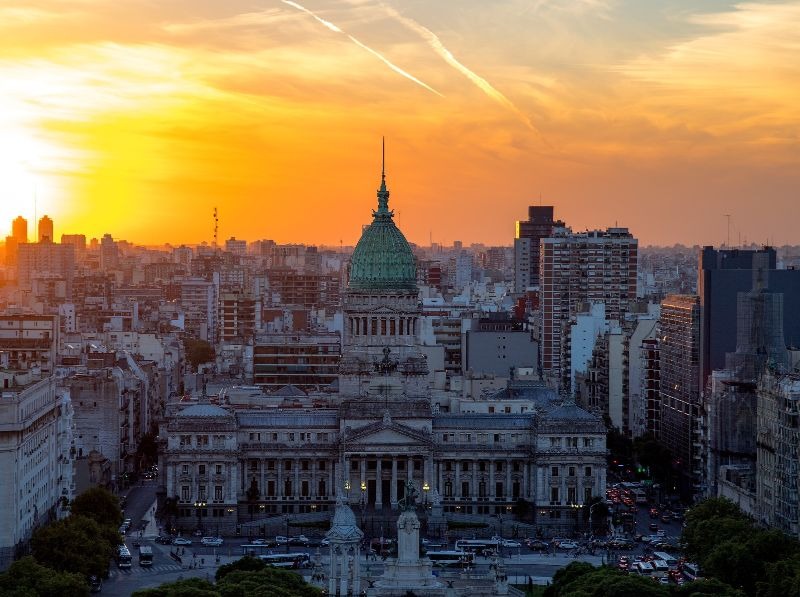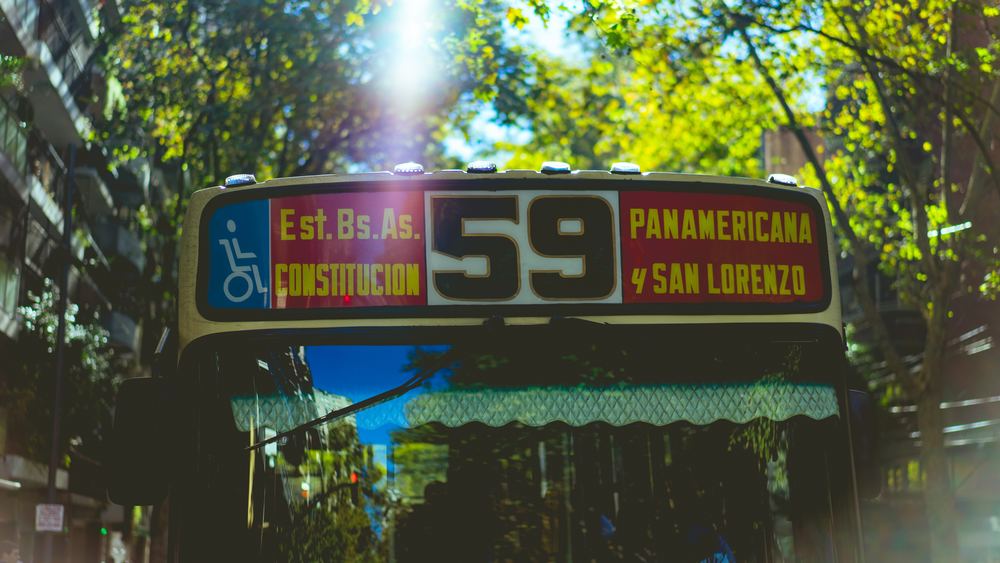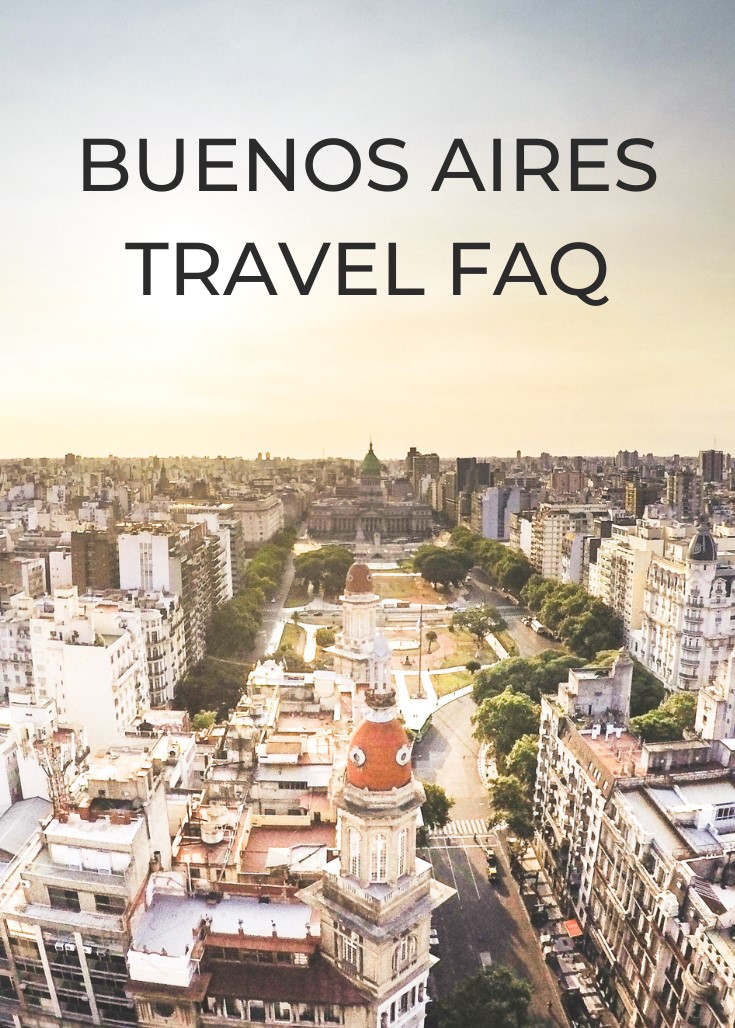Have a question?


Updated September 25, 2024
Planning a trip to Buenos Aires? This vibrant, culturally rich, and visually stunning city definitely won’t disappoint. Here are a few of the most frequently asked questions about Buenos Aires travel—we’ve included everything you need to know about safety and visa requirements, plus details on sightseeing and local flavors.

A: You are able to visit Argentina at this time! The U.S. Department of State does ask that you exercise normal precautions as some areas do have increased risk.
A: Nope. As long as your passport is valid and has at least one blank page, you’re free to stay in Argentina for up to 90 days without a visa.
A: Water quality can vary from region to region in Argentina, but throughout most of Buenos Aires the tap water is treated and perfectly safe to drink. If you want to be sure, ask the staff at your hotel or guesthouse. Your safest bet in restaurants or street stalls is to ask for bottled. (In Spanish, bottled water = “agua embotellada”.)
A: There is Uber in Buenos Aires, but the company is currently at odds with local authorities—Buenos Aires police don’t really want them there, so it’s a little sketchy. Most drivers will want you to pay with cash and sit in the front seat so they don’t get fined. For that reason, we don’t think Uber is the best option.

A: Buenos Aires has great public transportation. The quickest and easiest method is just to hop on the subte, Buenos Aires’ well-connected subway system. It connects the whole city, with convenient stops and super easy to read maps. Buses are also a good option—fares start at around $0.25 and most lines run all night. Both the buses and subways are totally safe for travelers—just watch out for pickpockets and keep your bags and wallets secure, like you would in any crowded area.
On top of that, you can always hail a taxi in person or through Easy Taxi anywhere you go. Taxi scams are rare in Buenos Aires, but can happen. So, only get into a taxi with a working meter (ask your driver before you get in) to avoid getting ripped off.
Pro tip: Traffic in Buenos Aires can get pretty crazy, so we don’t recommend renting a car for your stay.
A: There are no required vaccines to get into Argentina, but there are a few travel vaccines recommended by the CDC. The most important for Buenos Aires are Hepatitis A and Typhoid. You can get both of these nasty bugs from contaminated food and water, and they’ll really ruin your trip—so it’s worth it to get the shots ahead of time.
A: Buenos Aires is a popular travel destination, not to mention a diverse international city, so English is widely spoken in the city center. That said, you’ll probably run into language barriers at some point, especially when hopping in a taxi or buying some delicious cheap eats. It’s totally worthwhile to brush up on a few basic Spanish phrases before you go.
Pro tip: knowing a few key phrases might help you out of a tough spot when you’re struggling with a language barrier!
A: That depends on the situation. If you're satisfied with your service at a restaurant, it’s pretty standard to tip a server 10-15%. Taxi drivers don’t expect a tip, but you can round up the bill to an even number for exceptional service. For a tour guide, tips are more of a nice gesture than a necessity—5-10% is fine.
A: Buenos Aires is one of the more expensive South American travel destinations, but it can totally be explored on a budget. Actually, with tourism on the rise, it’s getting cheaper and cheaper to visit Argentina—so now’s a great time to go! Plan on spending as little as $50 USD per day for a budget trip (hostels or low-budget hotels, cheaper meals, and public transportation) and as high as $200 per day for a more luxurious trip (nice hotels, fine dining, and taxis or hired drivers).
A: Argentina uses the Argentine Peso—as of right now, one dollar is equal to about 56 pesos.
A: Yes, you will need a power plug adapter and a voltage converter in Buenos Aires. Argentina uses 220V electricity (Americans use 120V) so plugging in your electronics without a converter can be damaging to them. The outlets in Argentina are Type C (rounded 2-prong) and Type I (flat 3-prong)—your plugs won’t fit without an adapter.
You can grab an adapter and voltage converter in the airport on your way out, in any travel store, or just from Amazon.

A: Oh, yeah. Buenos Aires is renowned for its delicious cuisine, from high-end restaurants to mouth-watering street food. Here are a few dishes you absolutely have to try while you’re there:
A: Absolutely! There are plenty of gorgeous stops under an hour from the center of Buenos Aires. A 50-minute train ride can take you to Tigre, a charming delta town with a dizzying outdoor market. Visit the picturesque Carlos Keen by highway (you can take a bus there) for a delicious dinner in a rural setting. You can even hop a ferry into Uruguay to see the historic Colonia Del Sacramento, a UNESCO World Heritage Site.

How should we contact you?
Call
Thank you! We'll get back to you as soon as possible!
Click to register and track your question!
If you would like to follow up with us:
+1 (855) 782-3006